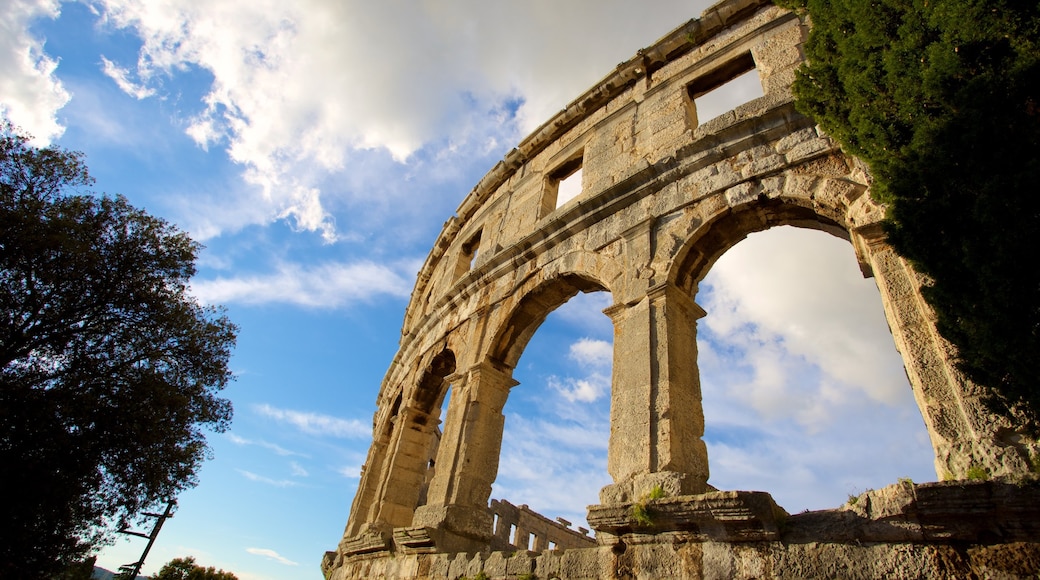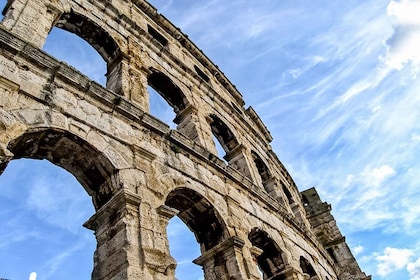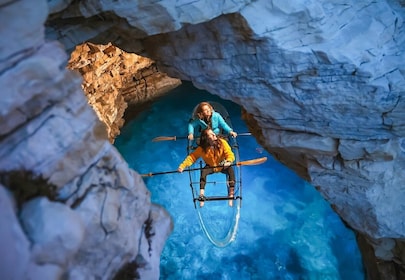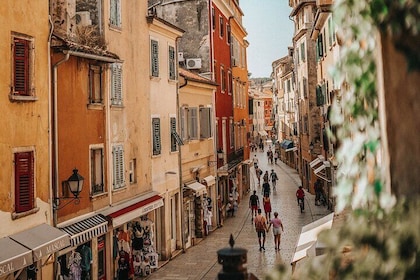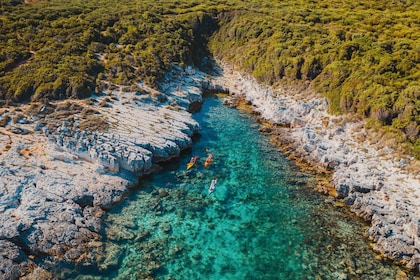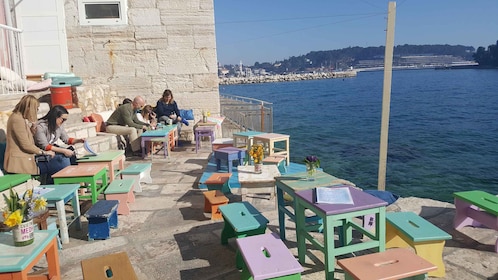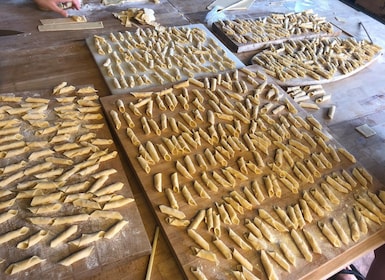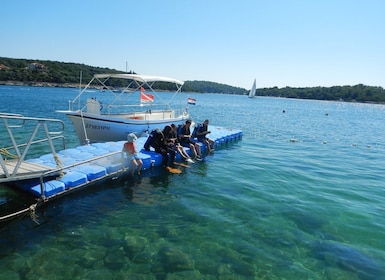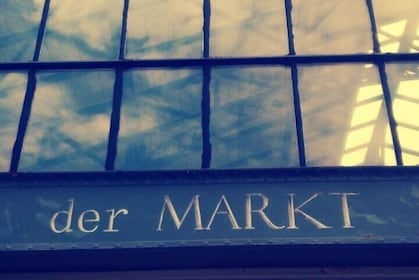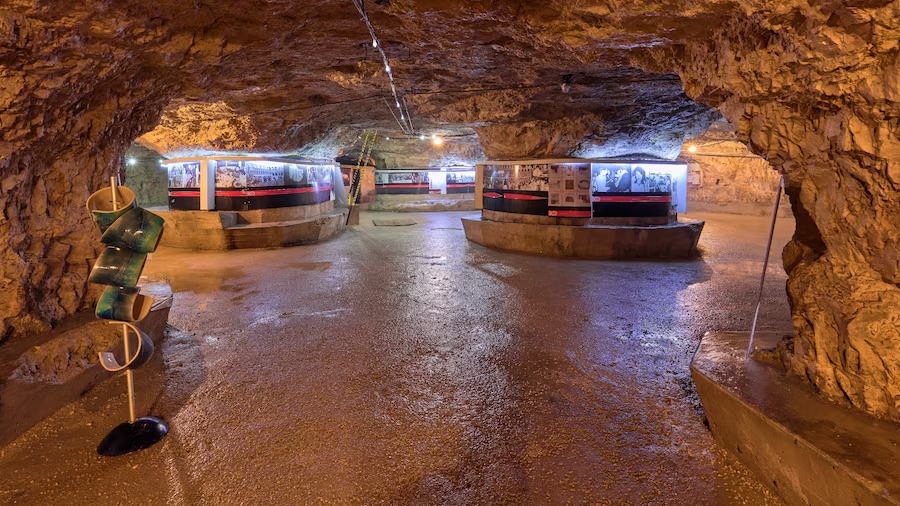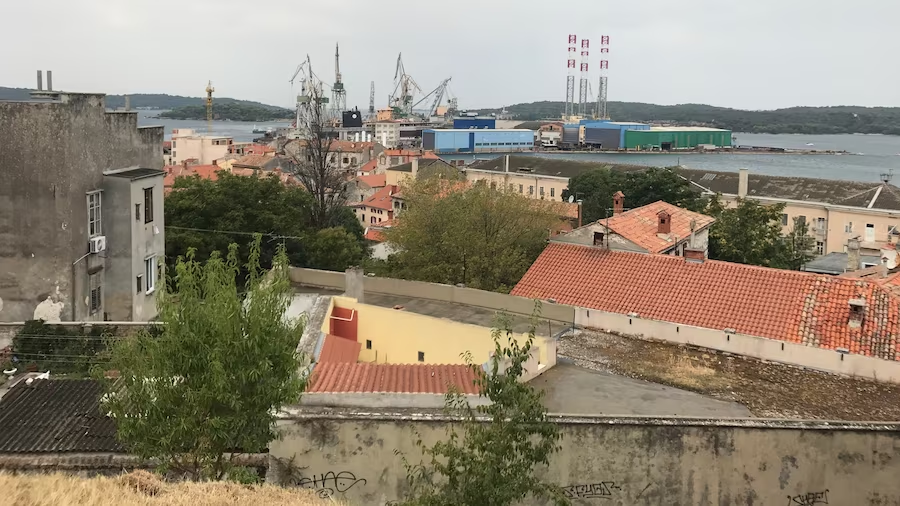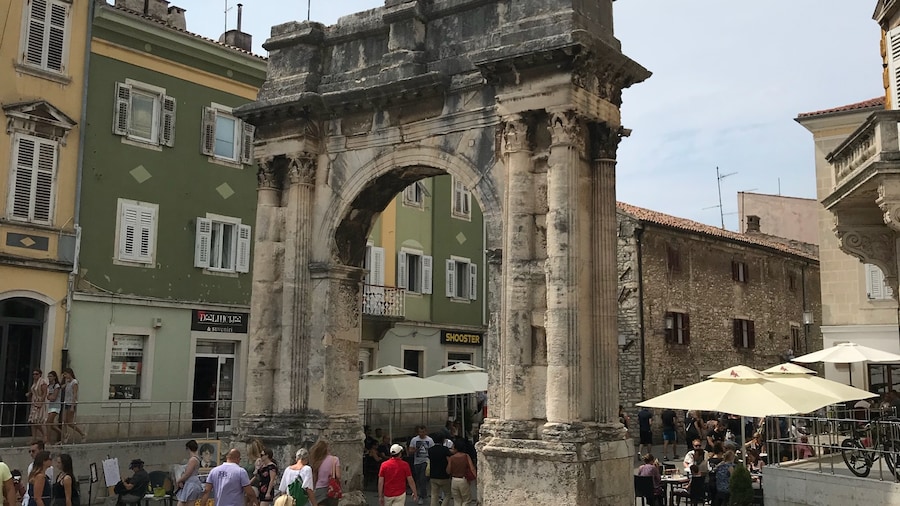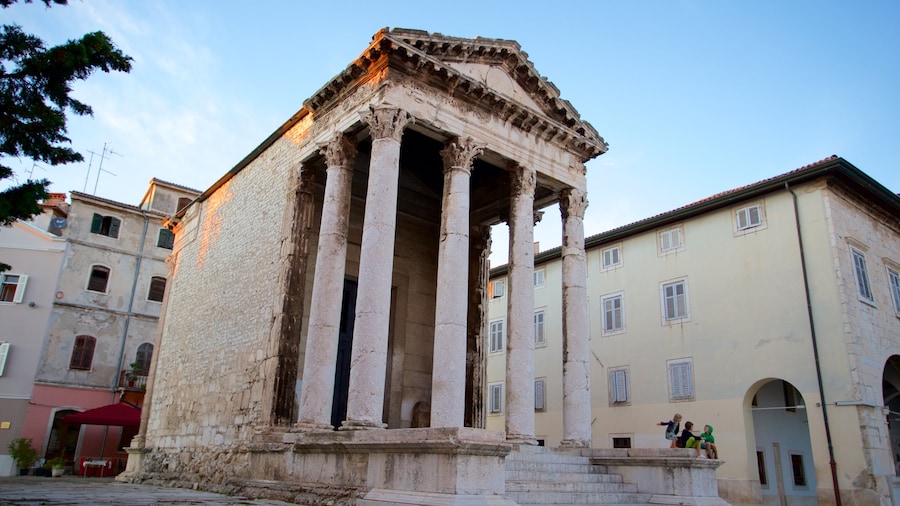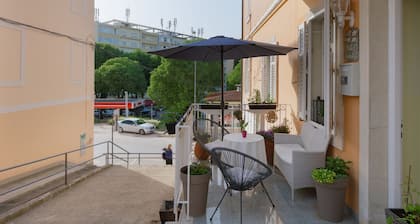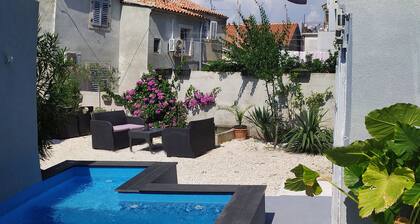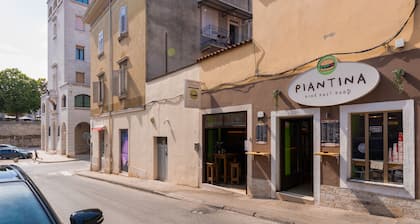The Pula Arena, or Pula Amphitheatre as it’s also known, is one of the largest Roman arenas in the world still standing. Explore the historic landmark during the day or attend a film screening, concert, opera or ballet at night.
Originally constructed in the first century, this arena was established under orders of Emperor Vespasian, who also ordered the construction of the larger and now world-famous Colosseum in Rome. During the 15th century, some of the limestone from Pula Arena’s interior was removed and used for local housing, but the exterior remains almost fully intact. Inspect the façade to find plenty of original features and details.
The oval exterior of the theatre is characterized by tiered arches, a typical design feature in Roman amphitheaters. Take special note of the four towers integrated into the outer wall. These towers are unique to this particular amphitheatre and make this structure stand out from other Roman counterparts.
Enter the arena and imagine how it would have looked in its prime, when approximately 20,000 spectators crowded into the tiered stone seating and standing gallery areas. During Roman times, this arena hosted bloody gladiatorial battles. Come here for a concert today and you’ll find it’s a lot less crowded, with audiences usually restricted to about 5,000.
Descend to the subterranean section of the theatre, where gladiators and lions were kept before games. Today, the underground area houses a museum devoted to the story of olive oil and wine production in Istria during the Roman period. Browse the exhibits, which include reconstructions of ancient olive mills and presses.
One of the best times to visit the arena is during summer, when it hosts various music concerts, as well as the Pula Film Festival. Check ahead to see if any events are scheduled during your visit.
Pula Arena is open daily, although hours vary from season to season. See the exterior of the theatre for free or pay an admission fee to gain access to the interior. The amphitheatre is located just outside the old town walls.




